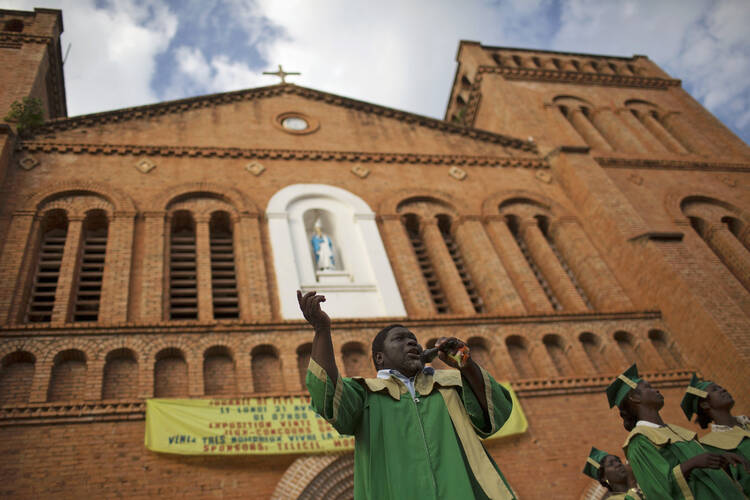Tensions between Christian and Muslim communities in the Central African Republic appear to be rising. As the predominately Christian anti-balaka (“anti-machete”) militias continue to harass Muslims around the country, there are signs that Seleka rebels, who are mostly Muslim, are attempting to regroup in the north. Some Seleka members and supporters are calling for a partition of the nation, with a de facto Muslim north peeling away from the Christian south.
On April 22 a revived Seleka (“Alliance”) rebel effort seized control of the northern community of Bouca, just 180 miles from Bangui, the capital. Hundreds fled the city or took shelter at a Catholic mission. Sporadic violence continued across the nation. Many Muslim families remained trapped at U.N. compounds, unable to seek assistance or even find food, their encampments encircled by anti-balaka militia members who threatened to harm them as soon as they emerged from the protection of African Union or French troops.
But the violence is not limited to attacks on Muslims. On Good Friday the Rev. Christ Forman Wilibona, a priest of the Diocese of Bossangoa, was gunned down in the street, presumably by Seleka remnants. Father Wilibona’s murder came two days after the kidnapping of Archbishop Nestor-Désiré Nongo Aziagbya, bishop of Bossangoa, and three other priests of the diocese in Batangafo by former Seleka fighters. The group was eventually freed, though not before their Seleka captors debated whether to execute them. The predominately Muslim rebels seized power in March 2013 but have since been driven out by the street militias. In the chaotic aftermath of their its reign, the Central African Republic’s government has struggled to reassert itself.
“All the north of my diocese is occupied by the rebels of the coalition Seleka, which lay down the law in spite of the presence of international forces,” complained Archbishop Nongo Aziagbya.
“We denounce and condemn these barbaric acts from another age,” said Archbishop Dieudonné Nzapalainga, C.S.Sp., head of the local office of Caritas, the church’s international relief and development agency. “We invite the people of the Central African Republic as well as all men and women of good will to pray for the return of peace and security to our country and to open their hearts to dialogue and reconciliation.” Archbishop Nzapalainga called on the government to restore the rule of law, and for African Union and French and European Union forces on the ground to disarm militias so people can be free to move around the country.
For everyone else caught in the middle between the anti-balaka militias and rebel Muslim groups, the struggle that has become part of daily life in the Central African Republic continues. More than 630,000 people have been driven from their homes and 2.2 million, almost half the population, now rely on humanitarian assistance for survival.
Editor’s Note (April 28): Mr. Clarke, America’s chief correspondent, will be traveling to the Central African Republic this week with Catholic Relief Services to find out more about conditions among the nation’s internally displaced people and efforts to restore order and protect the vulnerable from attack. Visit americamagazine.org for his dispatches from the troubled region and look for a comprehensive report in an upcoming issue of America.








